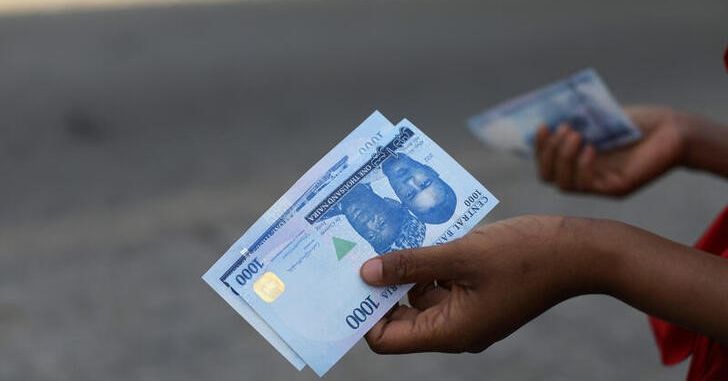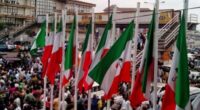By Chinwendu Obienyi
Commercial banks are bracing for a tightening liquidity environment as a surge in cash demand from both the public and private sectors could exert pressure on available funds, raising concerns about short-term financial stability and credit availability, Daily Sun investigations can reveal.
Multiple industry sources and financial analysts confirmed that a combination of rising currency withdrawals, maturing obligations, is pushing several banks close to their liquidity thresholds.
According to senior officials in the banking sector, the spike in cash demand is being driven by increased government payments, corporate tax remittances and heightened consumer withdrawals ahead of anticipated inflationary pressures.
Daily Sun gathered that bank treasurers are reportedly seeking short-term financing from regional and global partners while cutting back on new loan approvals to conserve liquidity.
Smaller banks are especially vulnerable. One mid-tier lender, speaking on condition of anonymity, said it had already activated contingency liquidity plans and halted large corporate withdrawals over the past 48 hours.
Despite an injection of liquidity from maturing Treasury bills and Open Market Operations (OMO) instruments amounting to N258 billion and N600 billion respectively last week, the financial system remained under strain. These inflows proved insufficient to ease liquidity constraints, which were further aggravated by the settlement of OMO sales worth a staggering N2.1 trillion by the Debt Management Office (DMO), effectively mopping up excess liquidity from the banking system.
The fallout was immediately evident in the money market, where the Nigerian Interbank Offered Rate (NIBOR) rose across all tenors. The overnight rate climbed to 26.92 per cent, while the 1-month, 3-month, and 6-month rates rose to 27.71 per cent, 28.38 per cent, and 29.14 per cent, respectively. These increases reflect the deepening scramble among banks for short-term funding, with elevated rates signaling tight conditions persisting across tenors.
Short-term interest rates in the collateralised segment of the market also mirrored the tightening trend. The Open Buy Back (OPR) rate held steady at 26.50 per cent, while the Overnight (O/N) rate ticked up by 10 basis points to 27.00 per cent.
The Treasury bills market was equally under pressure, with average yields in the secondary market rising by 15 basis points (bps) to close at 17.91 per cent, reflecting a bearish investor sentiment driven by both local liquidity dynamics and shifting global risk factors.
Market analysts noted that the Nigerian Interbank Treasury Bills True Yield (NITTY) curve exhibited mixed movements during the week. The 1-month, 3-month, and 6-month tenors rose by 11bps, 46bps, and 1bp to settle at 16.10 per cent, 18.32 per cent, and 19.10 per cent respectively. However, the 3-month segment posted a surprise dip of 32bps to 16.94 per cent, suggesting selective easing in certain parts of the curve.
Meanwhile, demand for government securities remained robust. At the Central Bank of Nigeria’s (CBN) Nigerian Treasury Bills (NT-Bills) auction held last week, the apex bank offered N220 billion across the standard tenors. Investor appetite was strong, with total subscriptions reaching N367 billion, yielding a bid-to-offer ratio of 2.12x. However, the final allotment stood at N173 billion, below the original offer. The stop rates for the 91-day and 182-day papers were held steady at 15.00 per cent and 15.50 per cent, while the 364-day paper cleared at 16.50 per cent, up from 15.88 per cent in the previous auction.
The DMO also conducted an OMO auction this week, offering N600 billion across the 105-day and 245-day maturities. Demand was overwhelming, with total subscriptions surging to N2.20 trillion. Eventually, N2.12 trillion was allotted, resulting in a bid-to-cover ratio of 1.04x. The stop rate for the 245-day instrument was set at 23.70 per cent, while no sale or rate was published for the 105-day tenor, likely reflecting the DMO’s strategy to prioritise longer-term funding.
Despite the strong demand for sovereign debt instruments, the liquidity squeeze is expected to worsen this week. Analysts warn that the absence of maturing government instruments will limit fresh inflows into the financial system, keeping liquidity constrained.
This means that with fewer sources of funding available, competition for available cash is likely to intensify among financial institutions, placing further upward pressure on NIBOR and other short-term rates.
“Last week’s OMO auction absorbed significantly more liquidity than was injected, and without upcoming maturities to rebalance the system, funding conditions will likely remain tight. Banks will have to rely heavily on the interbank market, and that’s already seeing considerable strain”, analysts at Cowry Asset Management Ltd said in an emailed note.
A financial policy analyst who did not want his name in print said, “The CBN, the way I see it, is walking a tightrope. On one hand, they are fighting inflation with tight money. On the other, banks are struggling to meet cash demands from clients, especially with limited access to long-term deposits.
This is not a crisis yet but it is a critical inflection point. If banks become too conservative or default on obligations, the effects could ripple through the entire economy.”
Although the apex bank is yet to issue an official statement as of the time of writing, insiders suggest that a short-term liquidity injection may be considered if market conditions worsen.
Hence, as the CBN and DMO continue to calibrate their liquidity management tools, the coming days will test the resilience of Nigeria’s short-term money market and the adaptability of banks navigating a landscape of limited inflows, rising rates, and mounting funding pressures.

















Leave a comment